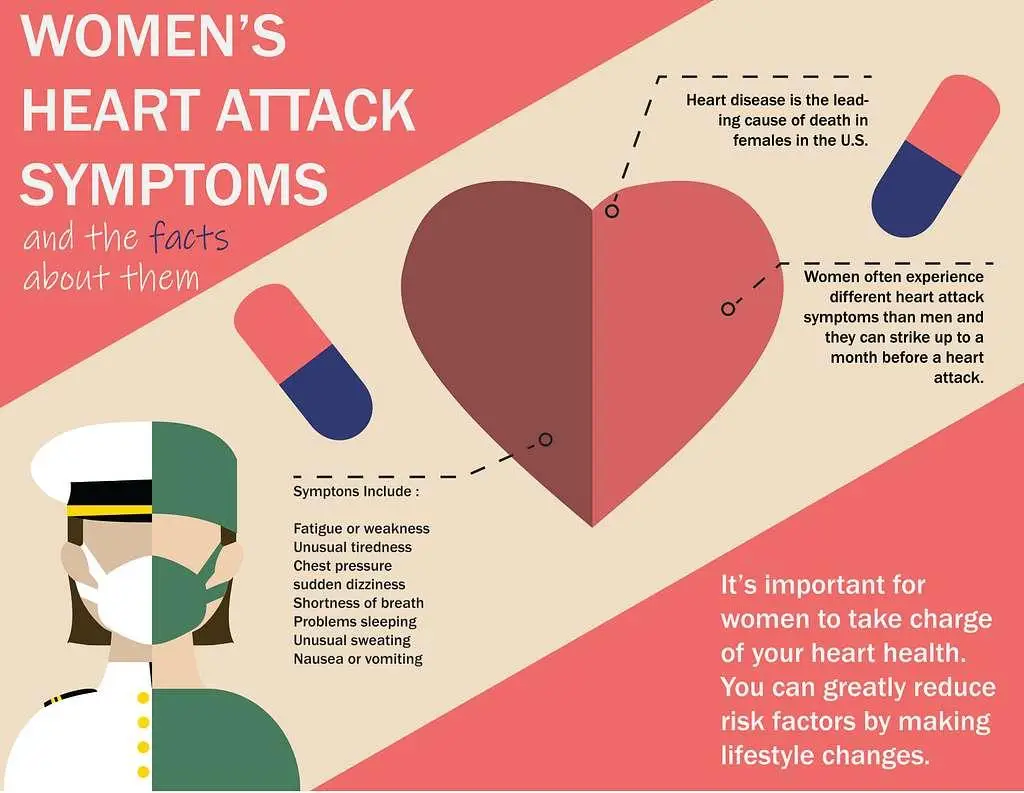In a world where our hearts are constantly battling the stress and strains of modern living, it’s more important than ever to take care of our cardiovascular health. Welcome to the Heart Health Handbook: Tips for a Stronger Cardiovascular System, your go-to guide for keeping your heart in top shape and ensuring a long and healthy life. Let’s explore the key strategies and habits that can help you maintain a strong and resilient cardiovascular system.
Understanding the Importance of Heart Health

Having a strong cardiovascular system is crucial for maintaining overall health and well-being. The heart is a vital organ that pumps oxygen and nutrients throughout the body, so it’s important to take care of it. Here are some tips to help you improve your heart health:
- Stay Active: Regular exercise is key to keeping your heart strong. Aim for at least 30 minutes of moderate exercise each day to improve circulation and lower blood pressure.
- Eat a Healthy Diet: Consuming a diet rich in fruits, vegetables, whole grains, and lean proteins can help reduce the risk of heart disease. Avoid foods high in saturated fats, cholesterol, and sodium.
- Manage Stress: Chronic stress can have a negative impact on your heart health. Practice stress-reducing activities such as meditation, yoga, or deep breathing exercises.
Additionally, it’s important to monitor your cholesterol and blood pressure levels regularly. High cholesterol and blood pressure can increase the risk of heart disease. If necessary, talk to your healthcare provider about medications or lifestyle changes that can help manage these levels.
| Tip: Aim for at least 7-8 hours of sleep each night to give your heart a break and allow it to rest and rejuvenate. |
Key Components of a Heart-Healthy Lifestyle

Leading a heart-healthy lifestyle is essential for maintaining a strong cardiovascular system and reducing your risk of heart disease. There are several key components that you should incorporate into your daily routine to ensure optimal heart health.
Healthy Eating: A balanced diet rich in fruits, vegetables, whole grains, lean proteins, and healthy fats is essential for a healthy heart. Limiting your intake of processed foods, saturated fats, and added sugars can help decrease your risk of heart disease.
Regular Exercise: Staying active is crucial for maintaining a healthy heart. Aim for at least 150 minutes of moderate-intensity exercise per week, such as brisk walking, cycling, or swimming. Strength training exercises can also help improve heart health.
Stress Management: Chronic stress can have a negative impact on your heart health. Practicing relaxation techniques such as deep breathing, meditation, yoga, or spending time with loved ones can help reduce stress levels and improve heart health.
Incorporating Exercise into Your Daily Routine

Regular exercise is crucial for maintaining a healthy cardiovascular system. By incorporating physical activity into your daily routine, you can strengthen your heart and improve your overall well-being. Here are some tips to help you make exercise a priority in your life:
Set realistic goals: Start small and gradually increase the intensity and duration of your workouts. Whether it’s a daily walk around the neighborhood or a weekly dance class, find activities that you enjoy and stick to them.
Make exercise a habit: Schedule your workouts like you would any other appointment. Treat it as non-negotiable time for yourself and prioritize your health.
Get creative with your workouts: Mix up your routine to keep things interesting. Try different types of exercises such as yoga, swimming, or cycling to challenge your body and prevent boredom.
| Exercise Tip: | Take the stairs instead of the elevator whenever possible to sneak in some extra physical activity throughout the day. |
Healthy Eating Habits for a Stronger Heart

When it comes to maintaining a healthy heart, it’s essential to adopt good eating habits that support your cardiovascular system. By making small changes to your diet, you can significantly improve your heart health and reduce the risk of heart disease.
One of the most important steps to take is to incorporate a variety of fruits and vegetables into your meals. These colorful foods are packed with vitamins, minerals, and antioxidants that help protect your heart from damage and keep your arteries clear. Aim to fill half of your plate with fruits and vegetables at each meal.
In addition to fruits and vegetables, it’s crucial to include healthy fats in your diet, such as those found in nuts, seeds, avocados, and fatty fish like salmon. These fats help lower cholesterol levels and reduce inflammation, both of which are key factors in maintaining a healthy heart.
Lastly, don’t forget to limit your intake of processed foods, sugary drinks, and saturated fats. These types of foods can increase your risk of heart disease and should be enjoyed in moderation. By following these tips and making mindful choices about what you eat, you can support a stronger cardiovascular system and enjoy better overall health.
Q&A
Q: What are some simple lifestyle changes that can improve heart health?
A: Incorporating regular exercise, eating a balanced diet, managing stress, and getting enough sleep can all contribute to a stronger cardiovascular system.
Q: What are some foods that are beneficial for heart health?
A: Foods such as oily fish, nuts, berries, whole grains, and leafy greens are known to promote heart health due to their high levels of essential nutrients and antioxidants.
Q: How often should one exercise to improve their heart health?
A: Aim for at least 150 minutes of moderate-intensity exercise per week, or 75 minutes of vigorous-intensity exercise, to see improvements in heart health.
Q: What role does stress play in heart health?
A: Chronic stress can lead to high blood pressure and inflammation, both of which can increase the risk of heart disease. Finding healthy ways to manage stress, such as practicing mindfulness or engaging in relaxation techniques, is key to maintaining a strong cardiovascular system.
Q: Can genetics impact heart health?
A: While genetics can influence an individual’s risk of developing heart disease, lifestyle factors such as diet and exercise play a significant role in preventing and managing heart conditions. It’s important to be aware of any family history of heart disease and take proactive steps to protect your heart health.
Final Thoughts
And there you have it, a comprehensive guide to improving your heart health and strengthening your cardiovascular system. By following the tips outlined in this handbook, you can take proactive steps towards a healthier heart and a happier life. Remember, your heart is the engine that keeps your body running, so be sure to give it the care and attention it deserves. Here’s to a stronger, healthier heart!



